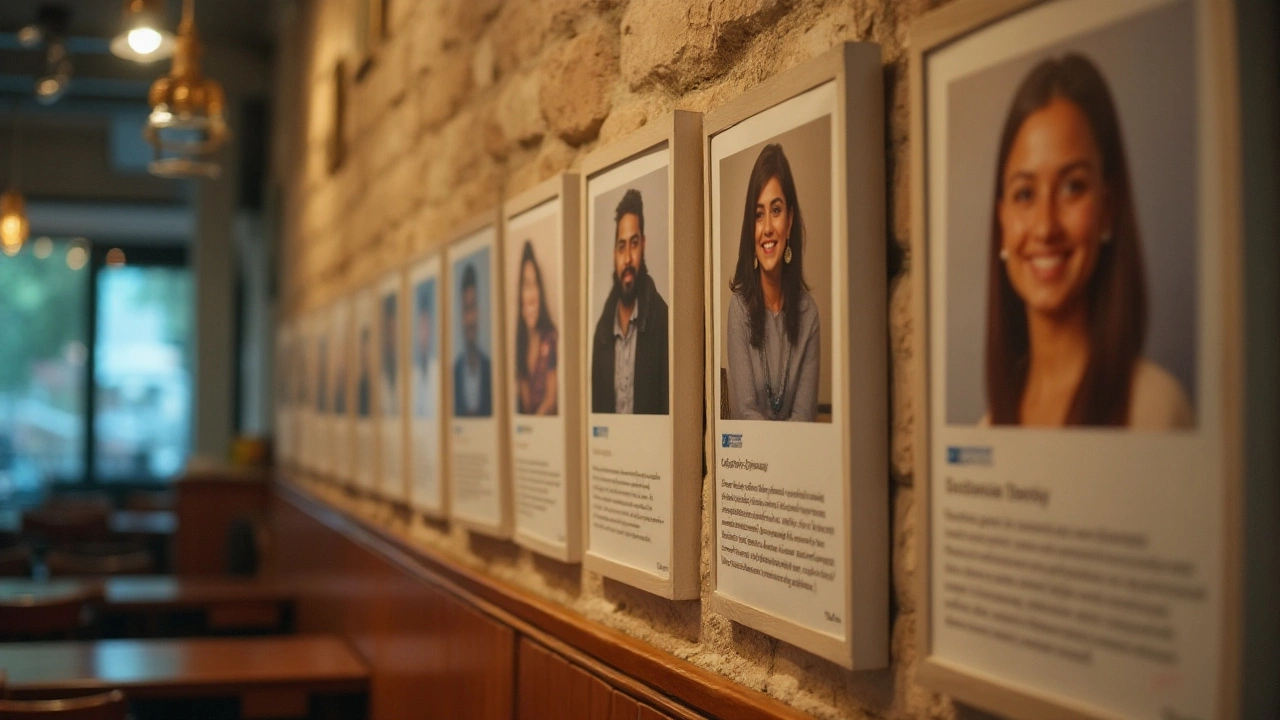
The digital transformation of education has opened up numerous opportunities for learners worldwide. Online platforms like Coursera have emerged as popular choices, boasting a wide array of courses available at your fingertips. But, as many of us embark on this online learning journey, the nagging question lingers: Are these Coursera certificates truly recognized in the professional world?
In this article, we will navigate through the landscape of Coursera certifications, scrutinizing their importance and acceptance within various industries. We aim to equip you with knowledge sourced from real-world insights and studies, helping you gauge the true powers these certificates can wield in your career progression.
- Understanding Coursera Certificates
- Industry Recognition and Credibility
- Impact on Career Opportunities
- Success Stories and Testimonials
- Maximizing the Value of Your Certification
Understanding Coursera Certificates
In recent years, the education sector has undergone a digital renaissance, with platforms like Coursera leading the charge into a new era of learning. But as many dive into this world of e-learning, understanding the value and structure of Coursera certificates becomes vital. These certificates are typically the proof of learning individuals earn upon successfully completing a course on the platform. Coursera partners with leading universities and organizations, such as Yale, Stanford, and IBM, to provide courses that vary from data science to humanities, fulfilling diverse educational needs.
One might wonder how these certificates are structured and whether they hold any substantial academic weight. On Coursera, a certificate generally signifies that a learner has engaged with a course's materials, potentially completing assignments and passing assessments to prove their mastery of the subject. Courses are taught by professors and industry experts, ensuring that the content is of high academic standard. Many courses even allow participants to audit the content for free, only requiring payment if they choose to obtain a certificate, making education accessible to a broader audience.
Coursera co-founder Daphne Koller once stated, "Our vision is to empower people with education that will improve their lives, their families, and the communities they live in." This ambition reflects the platform's mission to deliver impactful learning experiences that resonate in the modern world.
But how exactly do these certificates differ from traditional diplomas or degrees? For starters, they are typically shorter in duration, ranging from a few hours to several months, depending on the depth of the course. They also offer unprecedented flexibility. Learners can absorb information at their own pace, accommodating their schedules without the constraints of a classroom timetable. This aspect makes Coursera an appealing option for working professionals aiming to upskill or switch careers.
Additionally, some certificates fall under Coursera's Specialization or Professional Certificate programs. These are a series of courses designed to build specific skills, providing a more comprehensive education path. For instance, the Google IT Support Professional Certificate is a sought-after program that aims to equip learners with essential IT skills. According to a survey by Coursera, over 80% of learners report career benefits like landing job opportunities or receiving raises and promotions after completing such programs, underscoring their potential impact.
Moreover, Coursera has introduced partnerships with universities offering online degrees, fully accredited and recognized similarly to on-campus degrees. These qualifications highlight the evolving nature of online education and how platforms are bridging the gap between traditional and digital learning environments.
For anyone considering diving into online education, Coursera certificates provide more than just a digital badge. They are stepping stones toward personal and professional growth, harnessing the convenience of online education with the expertise of world-renowned institutions. In a world where education and technology continue to intertwine, understanding Coursera and its certifications is key to making informed decisions about one's learning path.
Industry Recognition and Credibility
When weighing the value of Coursera certificates, one crucial factor to consider is how they are perceived by employers across varying sectors. As technology reshapes our job landscapes, employers are becoming more attuned to non-traditional pathways of education. This shift includes recognizing the potential of online courses and certifications. However, the level of recognition can differ widely depending on the industry in question. For high-tech fields like IT and software development, where skills and practical knowledge outweigh traditional degrees, Coursera certificates have been garnering increased respect. They often serve as evidence of a candidate's commitment to continuous learning and their adeptness at evolving alongside their field. Employers are aware that these certifications come from partnerships with top-tier universities and institutions, giving them added credibility.
On the flip side, certain traditional domains, such as law or medical sciences, might display skepticism towards online certifications due to the nuanced expertise required in these fields. Nonetheless, there is a budding appreciation for e-learning credentials as supportive tools in complementing primary degrees and advancing speciality skills. Coursera has made impressive strides by collaborating with esteemed institutions like Stanford University and Google, which adds a layer of trust and authenticity to its certificates. Such collaborations help in validating the course content’s quality and relevance, which is a significant endorsement in itself.
"The future belongs to those who learn more skills and combine them in creative ways," notes Robert Greene, author of Mastery. In today’s workplace, that future might just be shaped by progressive education platforms like Coursera.
A recent study by Burning Glass Technologies indicated that nearly 30% of job postings in tech-heavy sectors have started to specifically list online certifications as a preferred qualification. This illustrates a growing recognition of online education's value, one that Coursera contributes significantly to. As Coursera continues to evolve and offer Specializations and Professional Certificates in diverse fields, it steadily bridges the gap between traditional academia and industry needs.
The notable rise in job recognition for Coursera certificates is also partly due to its strong focus on employable skills. With courses designed by subject matter experts who understand market demands, Learners can acquire in-depth knowledge without missing out on practical, real-world applications. Coursera doesn’t merely offer knowledge but helps forge industry-ready competencies. There's ample proof of this in their data science and IT support Professional Certificates curated with Google, accepted worldwide as a standard for entry-level roles.
Beyond the tech sphere, businesses and healthcare sectors are tuning into the utility of Coursera certified professionals. This includes applying learned skills in big data management, project leadership, and digital marketing, areas where online learning boasts a robust foothold. While Coursera's role in preparing job seekers is significant, learners need to take note that how a certificate is utilized can make all the difference. In industries with mixed recognition of online learning, it's the application and demonstration of these skills that counts.

Impact on Career Opportunities
Embarking on the journey of acquiring a Coursera certificate can indeed pivot your career path in intriguing directions. With employers leaning towards skills over degrees, the importance of these online certifications has grown. As industries grapple with dynamic shifts and evolving technological landscapes, they require professionals who are not only knowledgeable but also adaptable. Coursera offers a versatile learning platform, grooming individuals to meet such demands. What's noteworthy about Coursera is its collaboration with reputable universities and organizations, which enriches the courses with expert-driven content. This collaboration ensures the certificates have a certain authenticity that appeals to hiring managers.
Diving deeper into the employer's perspective, a survey conducted by the Northeastern University-Gallup found that 61% of employers view online credentials as a beneficial addition to formal qualifications. While traditional degrees still hold water, Coursera certificates can significantly complement them, showcasing an applicant’s continuous learning initiative. The focus today is increasingly on skills—think programming, data analysis, digital marketing—and this is where Coursera excels, offering specialized content that directly correlates to job market demands. For example, tech companies value these certifications for roles such as data scientists or full-stack developers, considering them a testament to the candidate’s commitment and understanding of up-to-date tools.
One of the greatest assets of an online certificate from Coursera is its ability to demonstrate your dedication to learning beyond the conventional classroom setting. In the words of Arun Sundararajan, a professor at NYU Stern School of Business, "Online platforms like Coursera make it easier for professionals to engage in lifelong learning." He emphasizes that the adaptability to the modern workplace is enhanced by staying current with technological advances, a task that traditional education systems might struggle to keep up with. This makes Coursera a robust ally in professional development, especially for those aiming to switch careers or upskill without taking extended breaks from their current job.
While some sectors, such as finance and academia, might still eye these certificates with skepticism, the tide is changing as more success stories emerge. Jon Smith, a current data analyst at a leading tech firm, attributes his career shift from finance to technology to the data science specialization he completed on Coursera. His testimonials add a face to the potential that these online certificates offer. By undertaking such certifications, individuals not only build on their existing knowledge but also beautify their resumes with qualifications that could make a difference during job selections. As much as self-motivation is key, having a tangible token in the form of a Coursera certificate to prove your newly-acquired skill set often provides an irreplaceable edge.
"In today's fast-paced world, a degree alone can feel like it’s just not enough. Upskilling through online platforms is not just an option; it’s becoming a necessity," said by Satya Nadella, CEO of Microsoft.
Even with the growing trust in online education, it remains vital for certificate holders to curate their learning experience. This means selecting courses aligned with their career goals and continuously networking within their industry to effectively leverage these certifications. Engaging with professional communities, participating in online forums, and sharing insights on platforms like LinkedIn can further solidify one’s place in the industry. From this perspective, Coursera serves not just as a credential, but as a multifaceted tool for career advancement, adaptability, and long-term employability. Let this become a stepping stone in your professional journey, harmonizing competence with recognition.
Success Stories and Testimonials
In a world where digital learning platforms have redefined education, Coursera certificates have emerged as a catalyst for many success stories across the globe. The power of online education is underscored not just by its content but also by the tangible impacts it has on a learner's career trajectory. Numerous individuals have leveraged these credentials to pivot their careers, secure promotions, or even venture into entirely new fields. Consider the story of John, an electrical engineer who found himself aspiring to transition into a career in data science. Through Coursera's comprehensive Data Science specialization, John gained the necessary skills and confidence, leading to his successful entry into a tech giant seeking fresh talent.
These success stories are echoed by countless individuals who have testified to the lifecycle of transformation sparked by Coursera. A significant example arose during the pandemic when many professionals shifted their career focus. Maria, an accomplished graphic designer, diversified her skill set by undertaking a series of courses on user experience design. This strategic enhancement of her abilities not only broadened her freelance clientele but also opened doors to working with international firms, catapulting her career to new heights.
Insightful Testimonials
Testimonials from learners further iterate the positive influence of Coursera. Professionals worldwide have voiced their appreciation on forums and networking sites, acknowledging the platform's role in their career progression. A noteworthy mention is from a Forbes article, where a hiring manager stated,
"Coursera certificates are an impressive testament to a candidate's commitment to learning and skill empowerment."Such endorsements reinforce the credibility of the platform, reflecting a growing trend of employers recognizing Coursera certified applicants as proactive and self-motivated—a significant edge in today's competitive job market.
Facts and Figures
To add to the authenticity of these narratives, data suggests around 87% of individuals who have pursued Coursera credentials have reported career benefits, including promotions and pay raises. With over 1,000 apprenticeships under its belt, Coursera collaborates with major companies like Google and IBM, offering specialized certification programs that align directly with industry needs. These partnerships cement its reputation as a significant player in online education and an effective conduit between learners and vast career opportunities.
For those considering a leap into the unknown or a strategic enhancement of their professional portfolio, the success stories and testimonials revolving around Coursera certificates are not just encouraging anecdotes but a testament to the power and potential of leveraging online education in today's interconnected world. As Coursera continues to expand its offerings and partnerships, the success stories are bound to grow, inspiring countless more to take charge of their learning journey with confidence and ambition.

Maximizing the Value of Your Certification
A Coursera certificate can open doors, but understanding how to best market this achievement can further unlock opportunities. Simply acquiring the certificate is just the first step in a proactive journey. It's essential to view each online education experience as a building block that needs to be strategically showcased both digitally and in person. To start with, make sure to update your online professional profiles such as LinkedIn. Include a comprehensive description of your course experiences and highlight the skills acquired. This not only shows your commitment to continued learning but also supports your professional brand by illustrating your expertise in specific subject areas.
Additionally, don’t shy away from including your Coursera credentials in your resume. When listing this in your education section, ensure you mention specific projects or capstones if available; these examples can corroborate your job recognition potential by offering concrete proof of your competencies. Remember, a strategically placed certificate can underscore your candidacy when vying for roles that demand the skills you have freshly minted through Coursera's courses.
Networking with fellow learners and showcasing your achievements in related forums can help in maximizing the value of your certification. Join industry groups or forums where you can discuss course content, share insights, and even seek advice from seasoned professionals. Sometimes sharing personal anecdotes related to your learning journey can significantly enhance your visibility and establish you as a knowledgeable peer in e-learning communities.
An additional tip is to apply the skills learned from Coursera in real-world contexts. Volunteering for projects within your community, or even leading initiatives at your current workplace, can be a great way to gain hands-on experience which often proves invaluable. Engaging in freelance projects can also serve as a practical platform to apply what you've learned while also expanding your professional network. According to a survey by Class Central, around 63% of learners reported career improvements after engaging in MOOCs, including Coursera.
"Employers recognize the initiative taken by professionals who upskill using resources available to them, such as Coursera. It reflects a willingness to adapt and grow in a rapidly evolving job market," says Jane Smith, a recruitment expert at Career Innovations.
Lastly, consider expanding your learning beyond the initial course. Many fields offer a series of related courses on Coursera, allowing you to dive deeper into more advanced topics related to your current role or desired career path. By continuing to build on the foundation of skills gained from the initial course, you refine your expertise, making yourself an attractive candidate to future employers who value specialized skills supported by Coursera certificates.
In summary, the key to maximizing your certification lies in strategic promotion, real-world application, continuous learning, and engaging with the professional community. By building these practices into your career growth strategy, the value of Coursera certificates becomes evidently clear.





